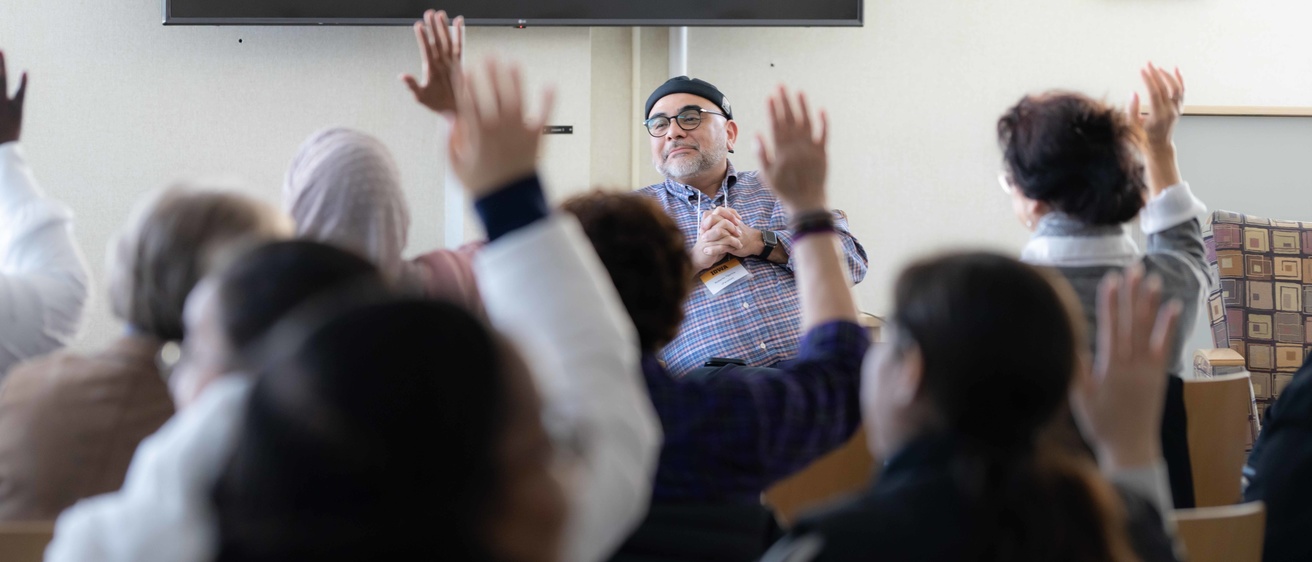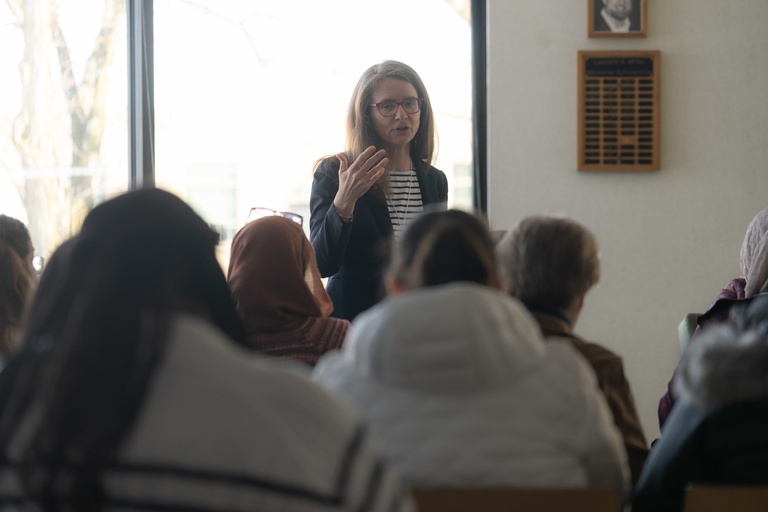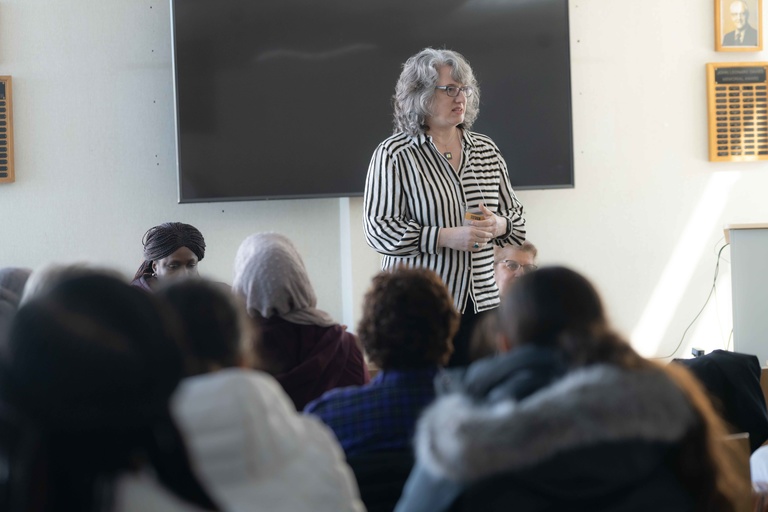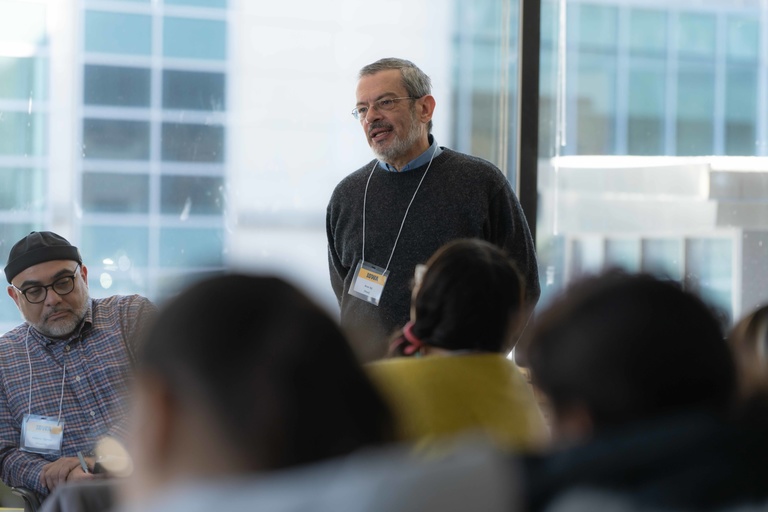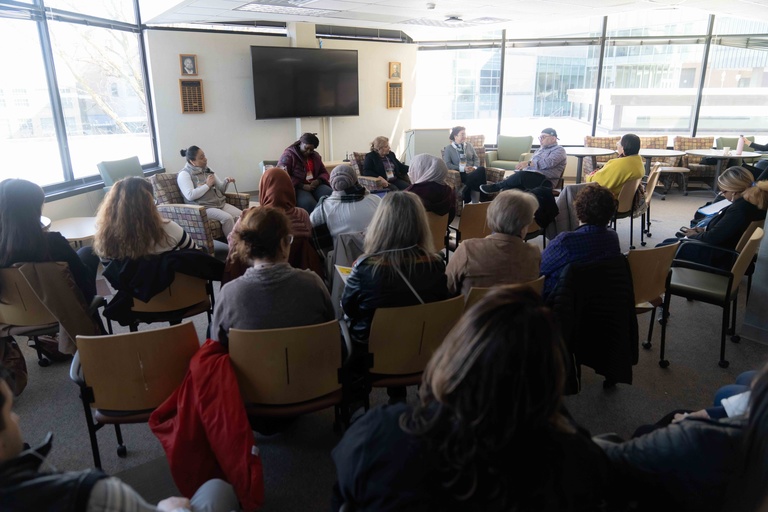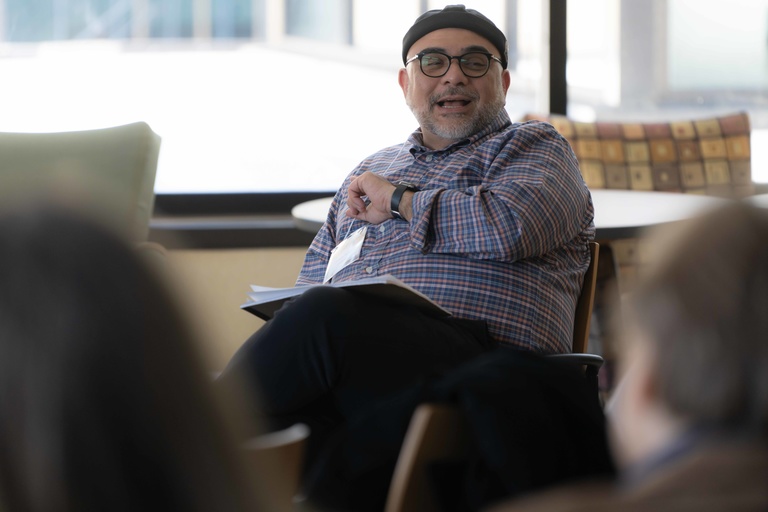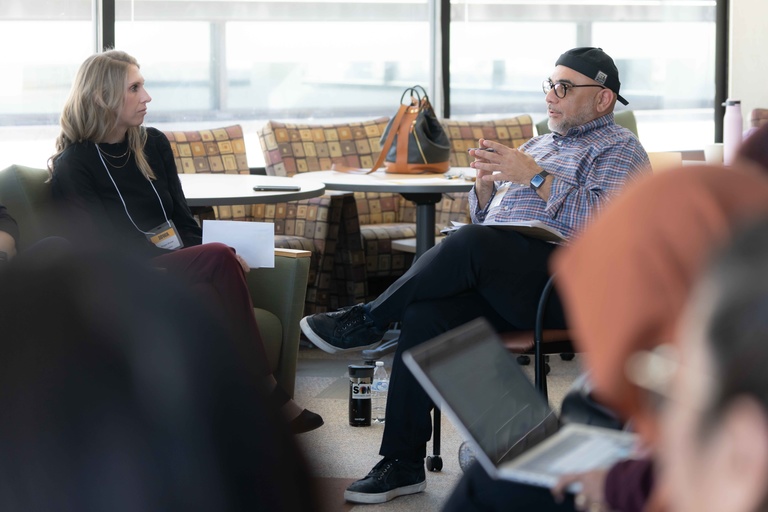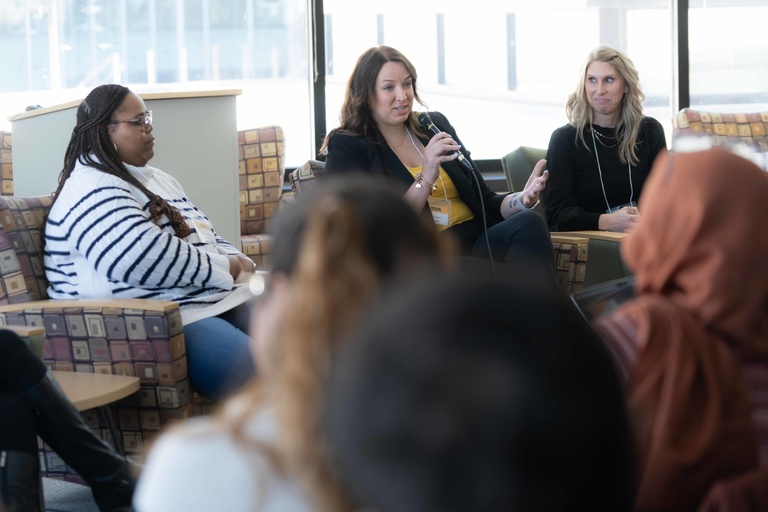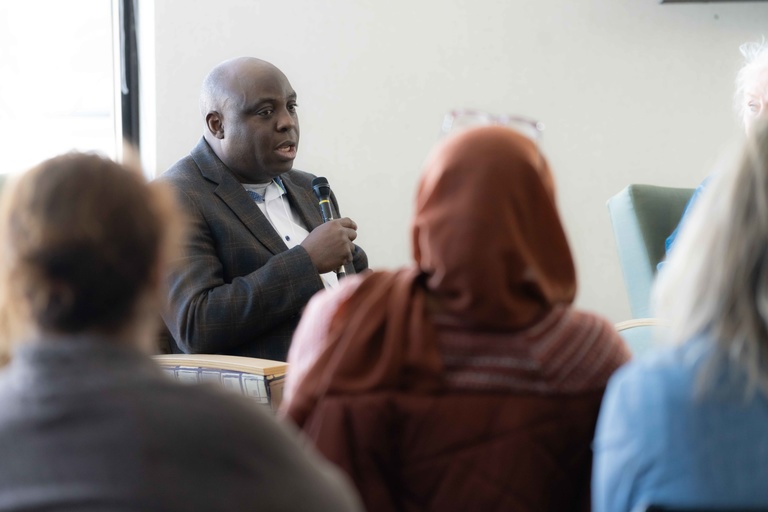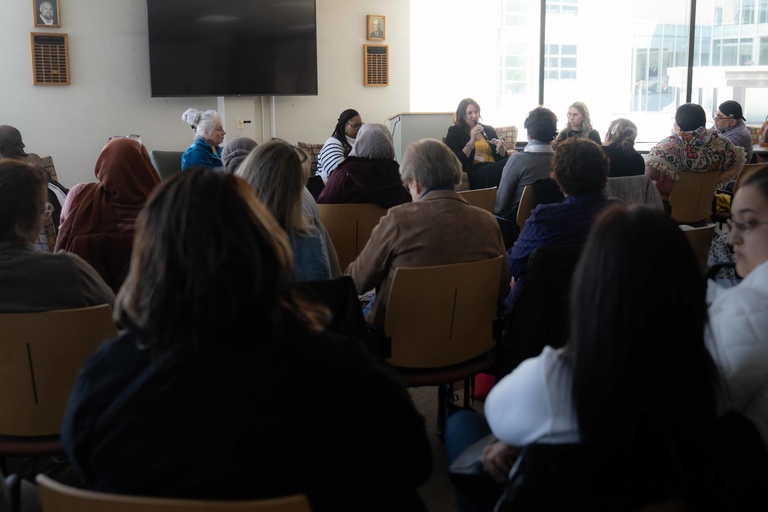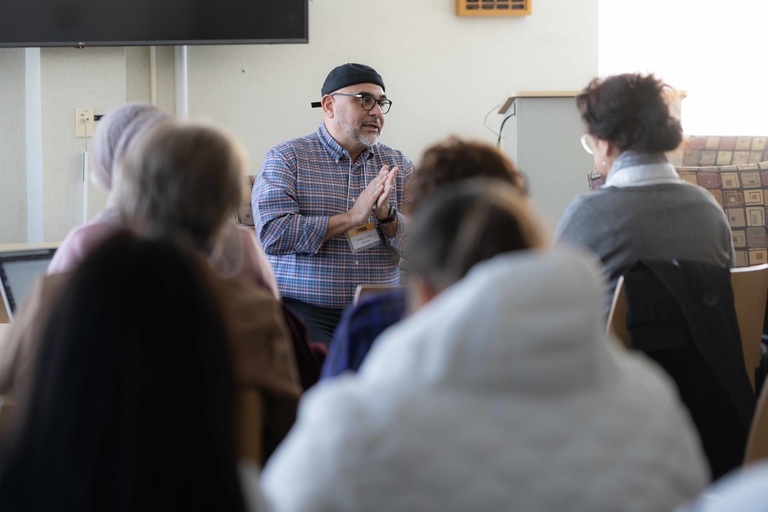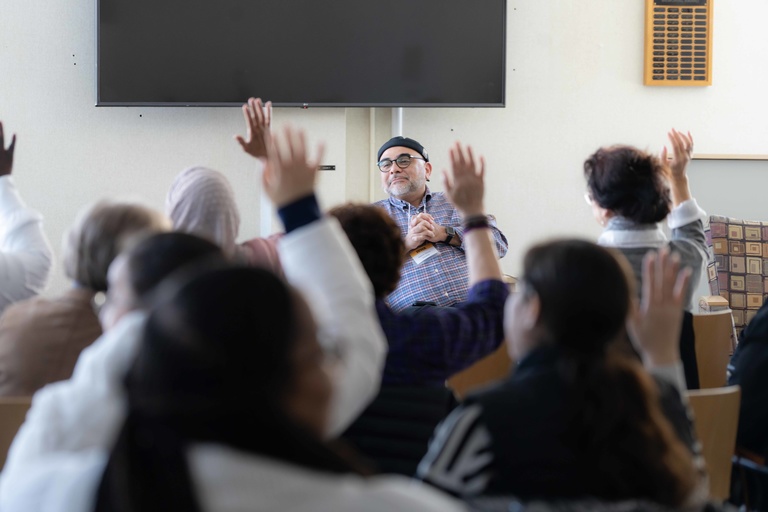Queer, Latino, first-generation child of immigrants and community activist, Roberto Tijerina was the 2024 CTGL Resident to lead the Summit on Community-Based Interpreting. The summit brought together interpreters from across the State who work with multilingual families. Tijerina spoke about language justice and community interpretation.
Growing up in the Borderlands
Tijerina's work centers around language justice. His way to tackle his work and activism around language justice is grounded on the tradition of popular education. Roberto started learning about language justice when he interpreted for his parents as a child. “I had to translate for my mom during the OB/GYN visit and I had to translate for my dad when the mechanic was making racist comments,” he said. It was later, during the first decade of the 2000s, when Roberto transformed these early experiences with language justice into his activist work at the Highlander Research and Education Center in Tennessee. “We needed to organize with these newly migrated workers from Mexico, in a region that has predominantly worked with Black communities,” Tijerina said. During these years, Roberto developed the Language Justice curriculum to work with community interpreters.
From Language Access to Language Justice
The summit emphasized the lens of language justice as a new way to approach community interpretation while moving away from the language access framework. Krystal Jossell-Morrison, Learning Supports Senior Specialist at Iowa City Community School District, urged us to change our minds about interpretation from what we do for those who don’t know English to an equity practice. Also, Renee Person, Principal at Kirkwood Elementary School, said "It is our responsibility for the lack of communication of the school district with multilingual families. And we place the responsibility on our children. Then we make them go home and they must tell their parents that this is happening in school." Also, Sunday Goshit, from the Refugee Alliance of Central Iowa, added, “It’s not just about someone who knows my language, but who understands me.” A shift in understanding community interpretation as language justice is necessary for urging our schools and community organizations to respond to our multilingual communities as an equity endeavor.
New Directions to work with Community Interpreters
During the last part of the summit, community interpreters came together to identify the needs of the community and its interpreters. One of the key ideas that emerged was the need to respond to the labor issues that affected interpreters (for example, the need to have clear expectations about the work they will be doing, the pay they will be receiving, and about the need to have breaks between interpreting sessions). Interpreters also expressed interest in receiving training to handle the emotional demands of the job. For example, some raised concerns about how interpreters ended up doing teachers’ jobs by having to translate mathematical or scientific terms to students. Some interpreters described that translating mathematical terms into students' languages wasn’t enough. Instead they needed to provide the students with a definition and explanation of those terms. Ultimately, interpreters urged the state to fund training of these key workers in our schools and communities.
